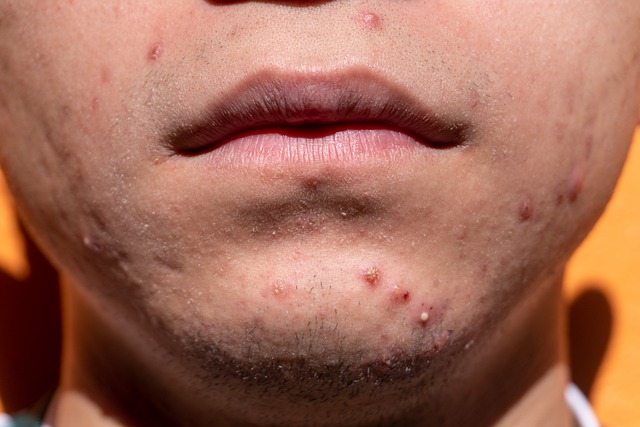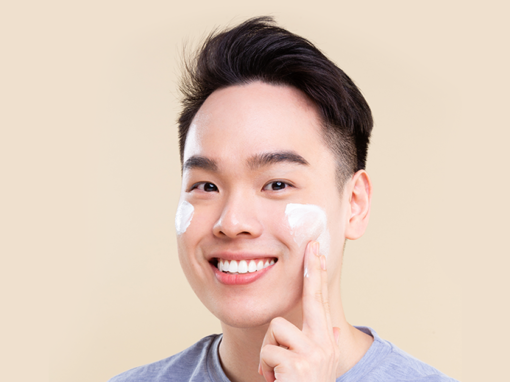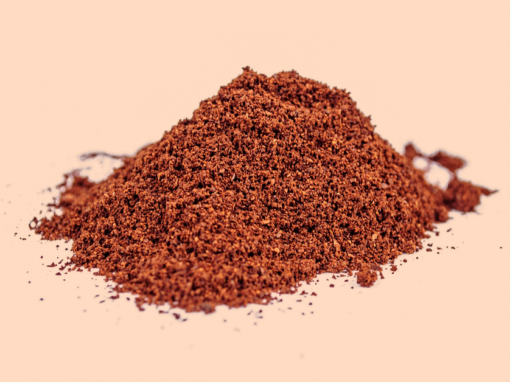Many men struggle with acne at some point in their life. There are treatment options available but it varies based on the severity of the outbursts.
The severity is categorised as:
1. Mild – shows up as whiteheads/blackheads
2. Moderate – more whiteheads/blackheads with pustules
3. Severe – multiple large and painful pustules, papules along with scarring.
The article discusses various available acne treatment options for men and why they need them.
Acne treatment in men: What to do?
The treatment for acne depends on the severity of acne and the pain in the affected parts of your skin.
Needless to say, chosen treatment methodology will also depend on your choice and what you are willing to undertake.
If you have mild acne, the usually recommended treatments are benzoyl peroxide, retinol, other exfoliants like hydroxy acids with some lifestyle changes.
Moderate and severe levels of acne may need a more careful treatment methodology, medications, or creams and lotions given with the advice of a medical professional.
1. Understand the cause of acne in men
Acne is commonly seen in men that hit puberty in early teenage and continue into adulthood. According to research, 42.5% of men in their 20s and 20.1 % of men in their 30s experience hormonal acne breakouts. Speak to a medical professional to understand the root cause of your acne. The choice of acne treatment could vary significantly based on the reason behind your acne. For example, acne due to stress may simply go away with certain lifestyle changes, but hormonal acne might need medicinal intervention.

2. See a medical professional to check for hormonal imbalance
Seeking professional help for severe hormonal imbalance is highly recommended. A dermatologist is a trained professional to treat skin conditions. They can provide you with the right help in analysing and understanding your condition and assist you to overcome it.
A general physician might recommend blood tests and other checkups to find out the cause of your hormonal imbalance.
3. Follow a good skincare routine
If you have an underlying acne problem, having an unclean face will only trigger it further. A good skincare routine supports your acne treatments to produce better results.
Here’s what a good routine looks like:
- Wash
- Moisturise
- Treat (this is important when we’re addressing acne)
- Apply sunscreen
4. Shave carefully
Acne can make shaving difficult and very uncomfortable. It is, therefore, necessary to take extra care while shaving.
Do not shave off the pimples and be gentle while shaving over blemishes. Try switching into an electric razor if you find a normal razor hard to shave.
Men with curly hair in the beard area are generally prone to folliculitis because the hair tends to curl under the skin. So, growing the beard longer before shaving is recommended.
5. Consider acne treatment creams and lotions
It’s helpful to do your own research to understand ingredients better and what you’ll need for your skin, and to to speak to a dermatologist for professional advice.
When trying a new product, it’s advisable to do a patch test as each product reacts differently to everyone. Here’s how:
- Apply the product to a test spot (quarter-sized, preferably in an area where it won’t be rubbed off. Example- bend of your elbow or underside of the arm)
- Leave the product on the skin for the day.
- Test for 7-10 days. If your skin does not show a negative reaction (redness, itchiness, etc), the product is generally considered safe for your skin.
6. Diet changes for acne treatment
Some studies have shown a significant improvement in people with acne following a high-protein and low-GI diet. This includes cutting out excess sugar in foods and beverages, as well as refined carbs like pastries and pasta.
Additionally, increasing your consumption of water has been proven to have significant positive impacts on acne.
Acne treatment cream: how does it work?
Acne treatments work by killing the bad bacteria and clearing the dead skin cells.
With the billions of acne creams available in the market, the choice for the right one may be overwhelming. Most acne treatment creams have ingredients like Tretinoin, Clindamycin Phosphate, Niacinamide, Azelaic acid and Zinc Pyrethione.
Here is the amount of each ingredient used in this cream.
Tretinoin: It removes the dead skin cells and keeps the pores clear of the bacteria.
Clindamycin Phosphate: 1% of this is usually used in most products. This is a topical antibiotic that removes the acne-causing bacteria.
Niacinamide: 4% of this chemical is usually used in acne creams. This is used to reduce the oiliness of the skin, strengthening the skin barrier.
Azelaic Acid: This ingredient is used in the cream to reduce redness and contains anti-inflammatory properties.
Zinc Pyrithione: It contains antibacterial and antifungal properties. It also helps in giving a glow to the skin.
When should men see a medical professional for acne treatment?
It is better to consult a medical professional when the symptoms of acne are in their mild stage.
A medical professional can offer an advanced treatment to control your acne, irrespective of the underlying cause.
How to choose the best men’s acne treatment?
As discussed, acne is dependent on triggers like family history, medication, stress, undiagnosed medical condition, hair or skin products, etc. Choosing the ‘best’ men’s acne treatment is subjective to the symptoms that one has. Knowing the causes can help you treat it right and obtain better results.
Speak to our team of medical experts to create a skincare routine that works for you.
The article is a part of our comprehensive guide on “Acne in Men.”


